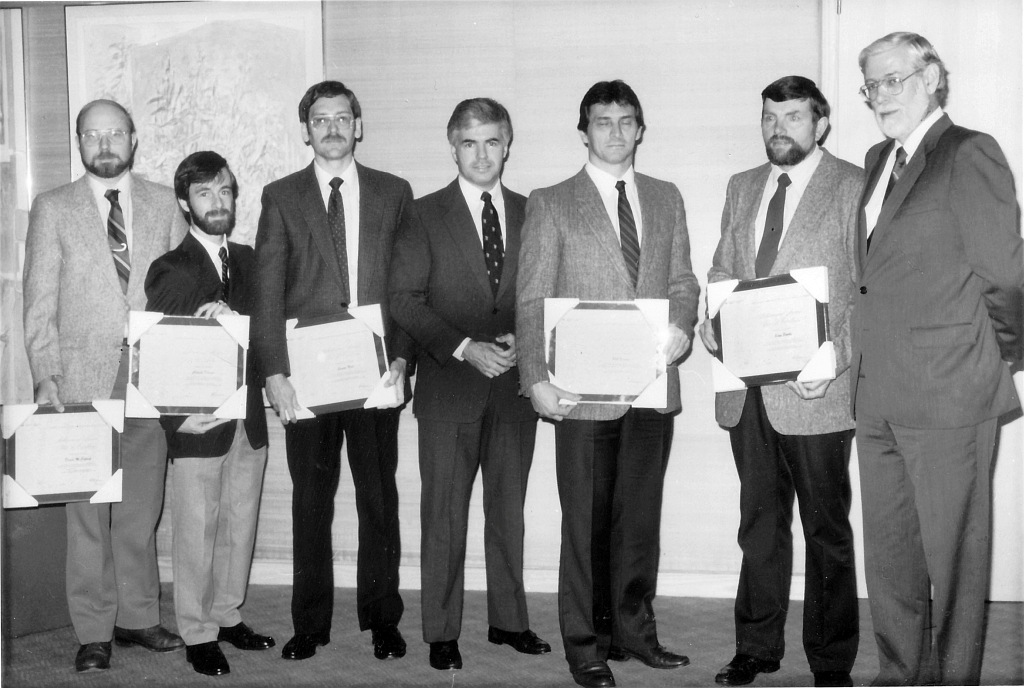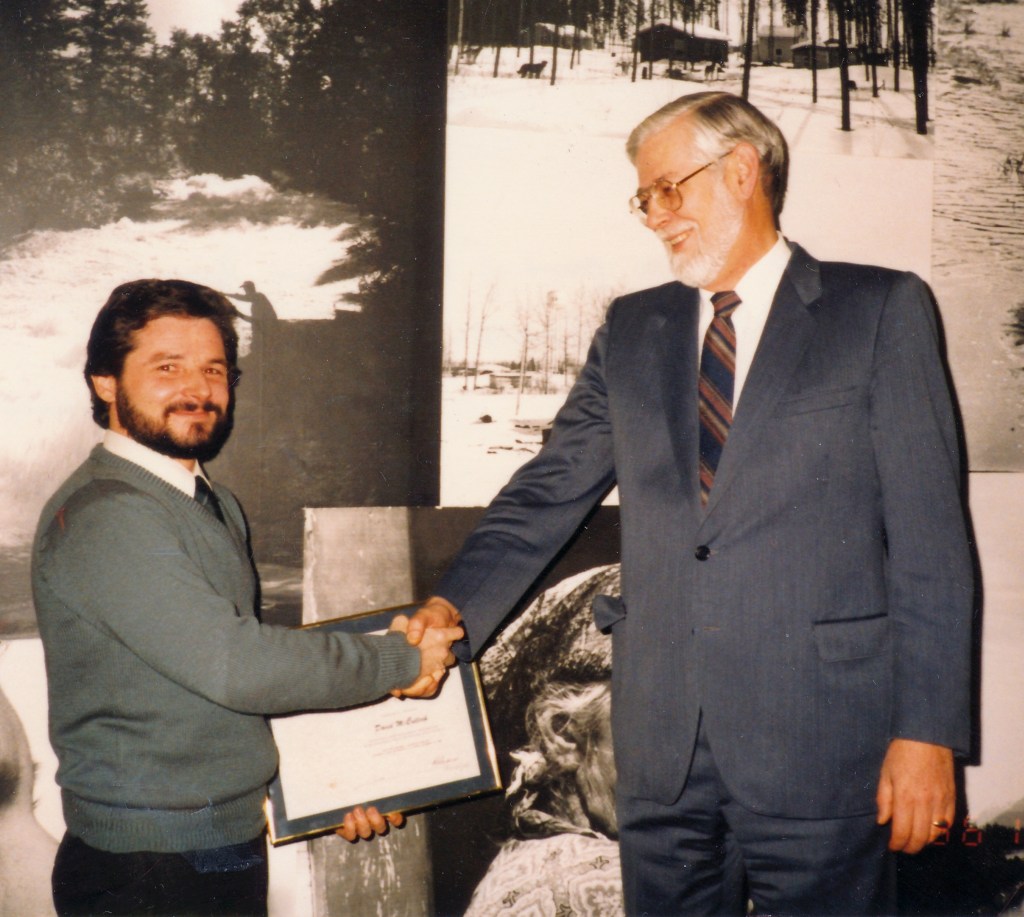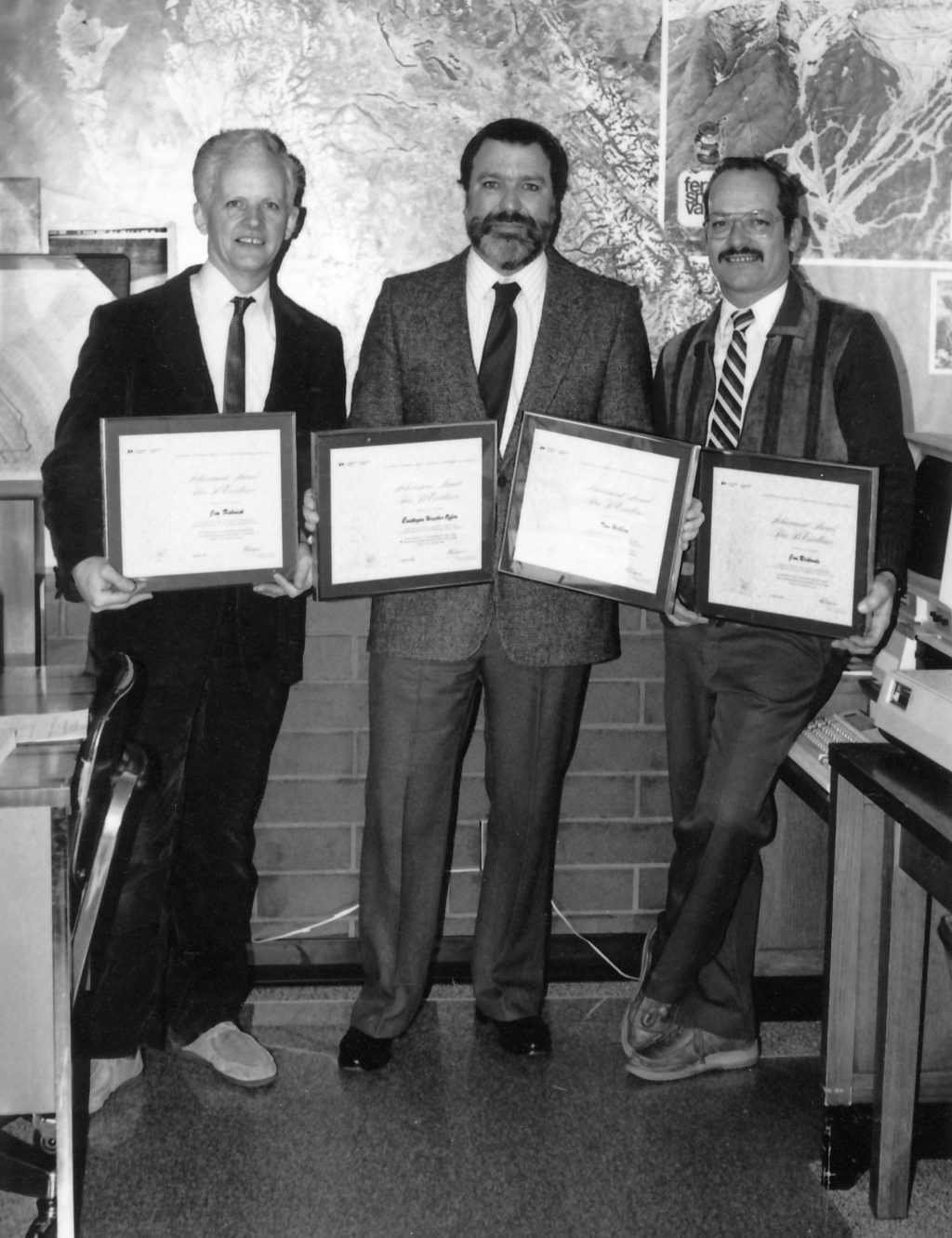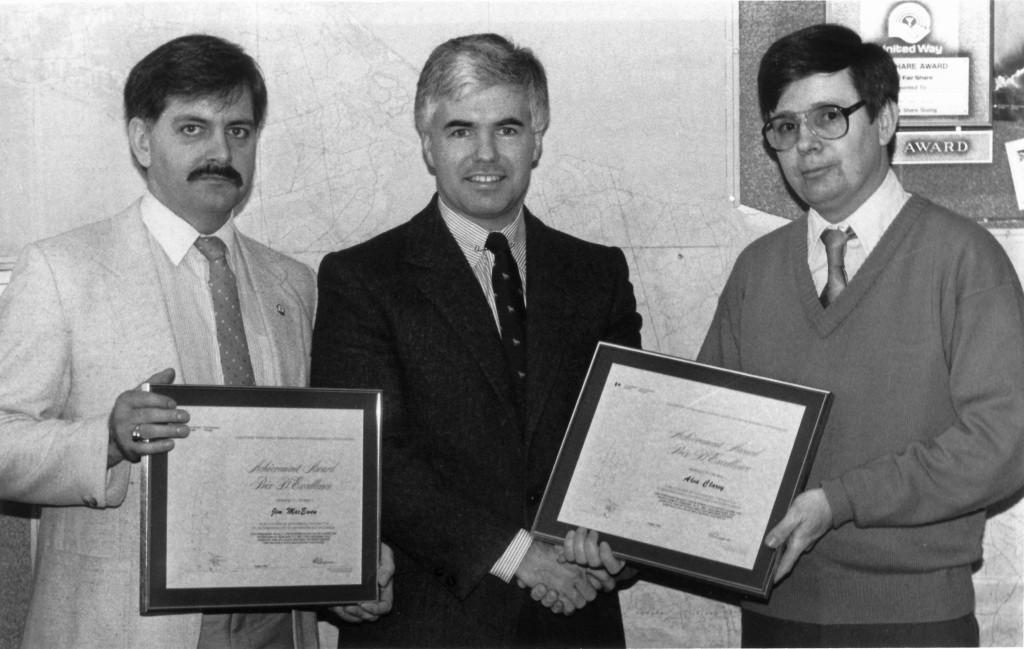AES (MSC) Achievement Awards - 1986
and 1987
Photos and texts on this page were
originally published in Feb. / Mar. 1987, April / May 1987 and Feb. / Mar. 1988 editions of Zephyrfour photos - please scroll down
Achievement Awards late 1986

l to r: Reg Dunkley, Claude Dicaire, Laurie Neil, Tom McMillan (EC Minister), Bob Brown, Stan Stobbe and Howard Ferguson (ADM AES).
Missing: Dave McCulloch (see below).
| For forecasting a major storm off the Pacific coast in October 1985 a team of Pacific weather centre forecasters received AES achievement awards. Presenting the awards at a special ceremony was Environment Minister Tom McMillan. The storm which at one time affected 70-100 fishing vessels off Vancouver Island was known as the "Maritime Bomb" (please see Zephyr article on this by Gary Wells, OIC Pacific Weather Centre in the January-February 1986 issue). |
Achievement
Awards late 1986 (continued)

Also part of the "Maritime Bomb" team at the Pacific Weather Centre
was Dave McCulloch.
Following his transfer to Ontario Region he also received an
achievement award from Howard Ferguson (right)
Castlegar
BC Technicians Receive Achievement Awards - 1987

|
Three Castlegar (BC) weather office
technicians (left to right) Jim
Fishwick, Tom Willson,
officer-in-charge, and Jim Richards
were recently presented with Achievement Awards in recognition of their
outstanding performance during the extreme forest fire hazard in July
1985. The awards, presented by AES Pacific Region, are the first to a
weather office in Canada for this kind of work.
|
Achievement
Awards, 18 December 1987

l to r: Jim MacEwen, Tom McMillan (EC Minister), Alva Clarey.
|
Jim MacEwen and Alva Clarey, both natives of Prince Edward Island received their citations as a result of performing duties during severe snowstorms "above and beyond the call of duty". Mr. MacEwan was commended for his efforts on January 31, 1987 when 48 cm. of snow and winds gusting to 93 km/h blocked all roads. Mr. MacEwen had to enlist the aid of a snowplough to cover the four kilometre distance to work in one and a half hours. Once there he remained on duty for 32 hours during which time he provided regular weather reports to the media. Mr. Clarey reported six hours ahead of time for his early morning shift because of a severe February snowstorm. Road and weather conditions became so bad that he was forced to remain on duty for a total of 48 hours. During this period he supplied regular reports to the media. |